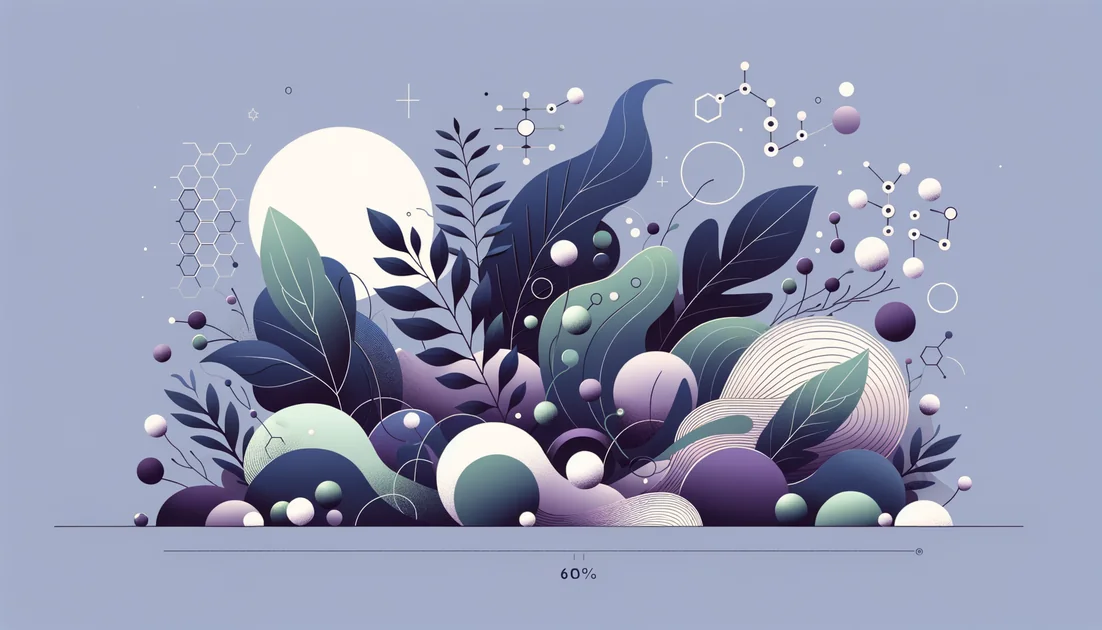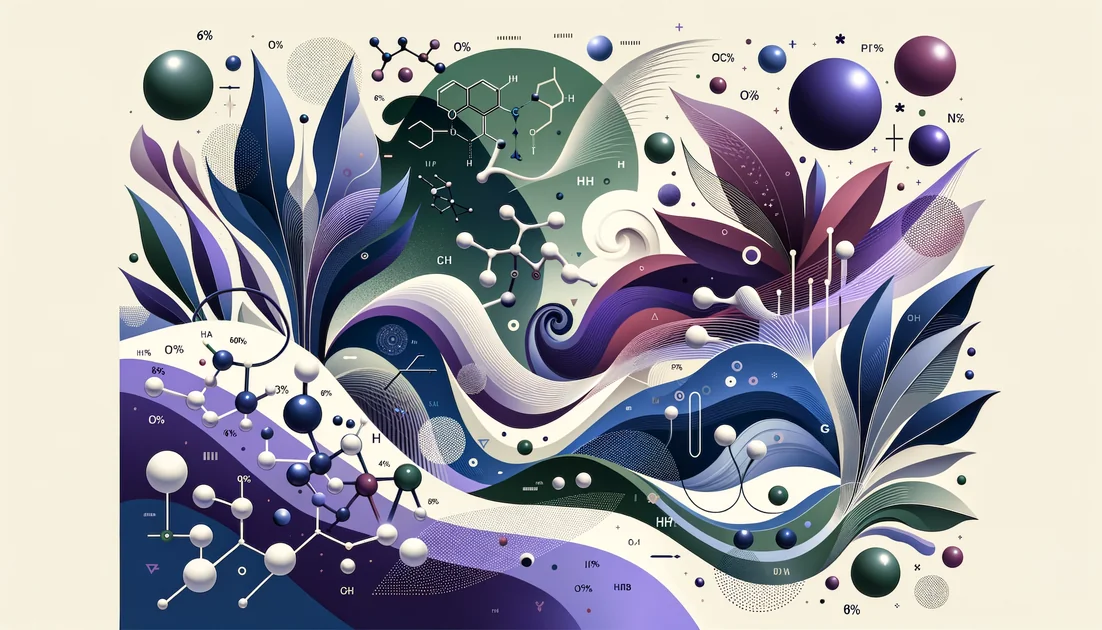
The Bitter Root and the Balancing Act: Tongkat Ali's Journey from Jungle Tonics to Measured Evidence
A paradox: a rainforest root famed as "Ali's walking stick" for virility becomes best known in labs for calming stress hormones and helping men with low testosterone—less a lightning bolt, more a slow rebalancing.
- Evidence
- Promising
- Immediate Effect
- Yes (mild) → 4–12 weeks
- Wears Off
- Within weeks after stopping
A bitter cup in the rainforest
In Malay villages, elders still boil a gnarled root into a bracing, bitter tea. They call it tongkat ali—"Ali's walking stick"—a nickname that winks at its reputation for vigor and virility. For generations across Malaysia and Indonesia, the root was poured after childbirth, sipped for malaria fevers, or taken to restore stamina after hard labor. Today, that same root shows up in glossy capsules across the world. How did a village tonic become a subject of clinical trials?[2][4] Back in 2003, a Malaysia–MIT collaboration set out to protect and standardize this plant. "The SNPs will be used to survey natural populations of Tongkat Ali, allowing us to identify the best possible plant material," said MIT researcher Philip Lessard, describing new genetic fingerprints to preserve and select elite trees.[1] It was a telling pivot: from folklore to quality control.
From jungle wisdom to measurable outcomes
When researchers put standardized hot-water extracts of tongkat ali to the test, the story sharpened. In a 12-week, placebo-controlled trial of men aged 50–70 with low testosterone, 200 mg/day of a branded water extract (Physta) increased total testosterone versus placebo as early as week 4 (with signals by week 2), eased fatigue, and nudged muscle strength upward; cortisol—the body's stress signal—fell in the higher-dose group.[5][5] An earlier randomized study (300 mg/day for 12 weeks) reported improvements in physical functioning and sexual well-being measures.[6] Zoom out to the big picture: a 2022 systematic review and meta-analysis concludes that tongkat ali supplementation increases total testosterone in men, with strongest effects in those starting low.[9] But the compound isn't a universal "T button." In healthy, younger men given 600 mg/day for two weeks, researchers saw changes in total and free testosterone and estradiol without shifts in pituitary signals—suggesting a short-term, modest hormonal nudge, not a wholesale rewiring.[7]
The quiet twist: stress may be the doorway
The surprise is how often stress biology sits at the center of tongkat ali's benefits. In a 4-week trial of moderately stressed adults, a standardized root extract reduced cortisol about 16% and improved mood states like tension and anger. Think of it less as a throttle and more as a thermostat—dialing down the internal "alarm" so energy and libido can to baseline.[8]
"This plant material will then be used to establish..raw material for extracting medicinal compounds."[1] That idea—start with clean, well-fingerprinted plants—echoes through modern studies that use standardized extracts and report the percentage of key bitter molecules (quassinoids such as eurycomanone). Without that, products can vary as widely as the forests they came from.[2]
Strength, fertility, and the fine print
What about performance? Trials in men suggest improvements in certain strength outcomes over weeks without "doping-like" shifts in the testosterone:epitestosterone ratio, though results are mixed and small in number.[6] For fertility, clinical experience ranges from in-vitro safety data on sperm at practical concentrations to open-label and clinic-based evidence: among subfertile men taking 200 mg/day, semen parameters improved over months and some couples conceived—encouraging, yet calling for larger randomized trials.[17][18] Safety matters. Most trials using 100–400 mg/day of standardized extract for up to several months reported no serious adverse effects, but rare case reports remind us that herbs are bioactive drugs by another name; a 2024–2025 case described acute liver injury soon after starting tongkat ali that resolved on stopping.[5][10] Another practical risk isn't the plant—it's the marketplace. Sexual-enhancement products are disproportionately adulterated with hidden prescription drugs like sildenafil or tadalafil; FDA notifications and a JAMA analysis document the pattern. Choose reputable brands and avoid "miracle" blends, especially honey-based products marketed for romance.[11][12]
The cost of popularity: conservation and confusion
Demand has a shadow. FAO observers noted that whole-root harvesting for mass-market drinks raised fears of over-exploitation—"there is now a concern that tongkat ali may be overexploited."[3] Add to that the name confusion: in Southeast Asia, several different plants are sometimes called tongkat ali, but only Eurycoma longifolia carries the clinical dossier you're reading about. It's another reason to favor standardized, species-verified products.[2]
How it seems to work—without the jargon
The hero chemicals here are intensely bitter quassinoids. You can think of them as foremen who walk the factory floor, urging the body back toward equilibrium. In men who start low, they appear to help nudge the body's own testosterone production and ease the brain's stress signal (cortisol), effects that can show up within weeks when dosing is consistent. Lab work also hints at antioxidant-like "fire-wall" effects in immune signaling, though that remains early-stage for everyday health.[5][8][15]
What to look for, and how to use it thoughtfully
Look for standardized hot-water extracts specifying eurycomanone content and the exact species Eurycoma longifolia, ideally from growers working with FRIM-style fingerprinting or equivalent quality systems.[1][2]
Typical studied doses: 100–400 mg/day of standardized extract for 8–12 weeks; improvements often appear within 2–4 weeks and build by 12 weeks. Benefits are most consistent in men with low-normal testosterone or high stress.[5][6][8][9]
Interactions: early human and lab work suggests potential interactions with certain drugs (e.g., propranolol absorption changes; effects on drug-metabolizing enzymes), so check with a clinician if you take heart or diabetes medications.[14]
Specific cautions: men with prostate cancer should avoid tongkat ali; it can act like a mild internal testosterone nudge.[16]
Where the research is going
Three frontiers stand out. First, standardization: dialing in eurycomanone and related quassinoids while tracking genetic fingerprints to protect the species and the science.[1][2] Second, targeted use: clarifying who benefits most—likely men with low baseline testosterone or high perceived stress—through larger, independent trials and athlete-specific studies.[5][6][8][9] Third, safety and authenticity: better surveillance to prevent adulteration and to define rare risks like liver injury, alongside sustainable cultivation to ease pressure on wild roots.[10][11][12][3]
The take-home
Tongkat ali isn't a magic switch. It is a steady hand on the body's thermostat—most helpful when the system runs cold (low testosterone) or hot (chronic stress). For the health-conscious, that means matching the herb to the story your labs and life are already telling, and choosing products that respect the plant's origins and the science catching up to it.[5][8][9][2]
Key takeaways
- •Best evidence is in men with low testosterone; effects can appear within weeks and build by 12 weeks.
- •Stress biology is a key pathway—several trials show lowered cortisol and better mood.
- •Product quality varies; insist on standardized, species-verified extracts to avoid adulteration.
- •Rare liver injury has been reported; discuss use if you take medications or have liver disease.
- •Not a performance "hack" for everyone; results are modest and inconsistent in healthy young men.
You might also like
Explore more of our evidence-led investigations, comparisons, and guides across every article style.

Life Extension
Life Extension's paradox: quality-control muscle, request-only proof, and a cleaned-up regulatory trail

Marine collagen peptides (fish-derived) vs Bovine collagen peptides (hide-derived)
Pick marine if you avoid land animals or value potential sustainability; pick bovine if you want lower cost and the same evidence profile. Clinically, source doesn't clearly change outcomes. [1][2]

Best for gut health
Psyllium husk – 5 g twice daily

Nicotinamide Riboside (NR)
A vitamin fragment first traced in milk promises to recharge aging cells—and in some studies even softens stiff arteries—yet animal data hint it could also empower the wrong cells. What do we really know about nicotinamide riboside?

Protected Brain Fuel: Prevent The Damage
Protective + dual-pathway combo with promising but not definitive synergy; best for lowering inflammation/oxidative stress markers, not proven to outperform omega-3 alone on hard outcomes.

Tocotrienols
The stealthier cousins of vitamin E—built with springy tails that move differently in cell membranes and behave differently in your body.


